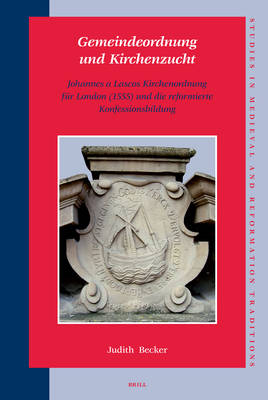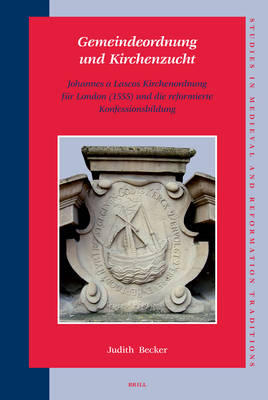
- Afhalen na 1 uur in een winkel met voorraad
- Gratis thuislevering in België vanaf € 30
- Ruim aanbod met 7 miljoen producten
- Afhalen na 1 uur in een winkel met voorraad
- Gratis thuislevering in België vanaf € 30
- Ruim aanbod met 7 miljoen producten
Zoeken
Gemeindeordnung Und Kirchenzucht: Johannes a Lascos Kirchenordnung Für London (1555) Und Die Reformierte Konfessionsbildung
Judith Becker
€ 236,95
+ 473 punten
Omschrijving
This study describes the origins of early Reformed confessional development using the example of those congregations of religious refugees most heavily influenced by John Laski: the congregation at Emden and the Dutch and French Strangers' Churches in London. At its center are questions about the congregation as the location of ecclesiology. The outlines of Laski's theology--which viewed the congregation as the communion of the body of Christ--are described in comparison to the approaches of other Reformers and in relationship to daily reality in the second half of the sixteenth century. Working from a rich base of source materials, the author discusses the development of teachings on church offices and the practice of church discipline, thus illuminating the self-understanding of the three congregations. Becker shows how reciprocal influences and attempts to conform led to the unification of doctrine and community life within these congregations.
Specificaties
Betrokkenen
- Auteur(s):
- Uitgeverij:
Inhoud
- Aantal bladzijden:
- 589
- Taal:
- Duits
- Reeks:
- Reeksnummer:
- nr. 122
Eigenschappen
- Productcode (EAN):
- 9789004157842
- Verschijningsdatum:
- 22/06/2007
- Uitvoering:
- Hardcover
- Formaat:
- Genaaid
- Afmetingen:
- 166 mm x 243 mm
- Gewicht:
- 1238 g

Alleen bij Standaard Boekhandel
+ 473 punten op je klantenkaart van Standaard Boekhandel
Beoordelingen
We publiceren alleen reviews die voldoen aan de voorwaarden voor reviews. Bekijk onze voorwaarden voor reviews.








